Legal Action Taken Against Prison Staff in Iranian Protester's Death
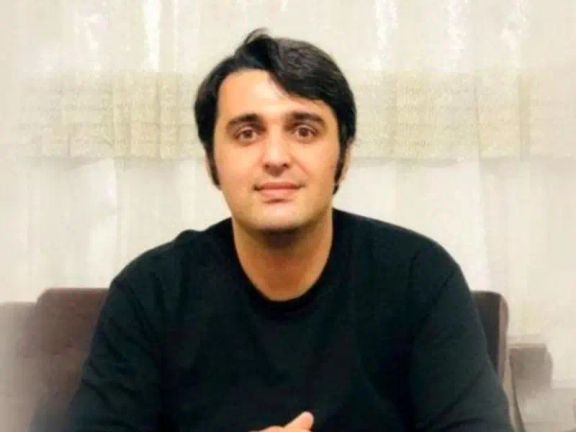
Legal action has been filed against the prison medic and jailer of Javad Rouhi, a protester who died under suspicious circumstances in Nowshahr Prison.

Legal action has been filed against the prison medic and jailer of Javad Rouhi, a protester who died under suspicious circumstances in Nowshahr Prison.
Majid Kaveh, the attorney for the family, said the medic faces charges of "involuntary manslaughter" while the jailer is accused of "failure to deliver prisoners' complaints to competent authorities." The case has now been forwarded to the Sari Criminal Court for further proceedings.
Rouhi was arrested in the midst of the September 2022 uprising during a protest in Nowshahr, where he was later sentenced to death under charges including dancing at a protest and allegedly burning a police kiosk. Additional charges of apostasy were levied against him for purportedly desecrating the Quran and insulting sacred values, charges that Rouhi and his legal representatives have disputed. CCTV evidence suggested Rouhi’s mere presence at the protest site, with no involvement in the alleged acts of vandalism or desecration.
Despite international outcry from organizations like Amnesty International which said authorities subjected Rouhi and others to "beatings, floggings, electric shocks, suspension, death threats and sexual violence to extract “confessions”", Iran has consistently shirked responsibility for his death and the deaths of other protesters, maintaining a stance of denial.
His death on August 31 last year was reported as being due to a "seizure" by Mizan News Agency, Iran's judiciary media outlet, in echoes of high profile deaths such as Mahsa Amini, who died in morality police custody for not wearing her hijab correctly. Her death sparked the 2022 Woman, Life, Freedom uprising. After a UN investigation attributing her death to violence while in custody, the government called the claims "baseless".

Farzaneh Qarahassanlou, imprisoned for her involvement in Iran's 2022 protests, has gone on hunger strike to protest the denial of urgent medical care after experiencing complete sensory loss on the left side of her body, sources told Iran International.
A source close to her case informed Iran International of the distressing conditions at Vakil Abad prison in Mashhad, where she is imprisoned. Despite her requests to consult a physician, she is receiving inadequate medical care.
The source said that the facility's medical personnel have administered only pain-relieving medication without conducting any examinations and she hasn't been granted leave to get medical consultation outside of prison.
The source also expressed concern over the well-being of other political detainees in the facility, including Fatemeh Sepehri, asserting that they are being deprived of adequate sustenance, leading to noticeable weakness and malnourishment. Fatemeh Sepehri, who has also been in prison since the nationwide protests, has undergone several operations, including an open-heart surgery, but still remains imprisoned.
In March, Mohsen Bayat, Farzane Qarahasanlou's lawyer, told Shargh News that his client had received a two-week ban on phone calls and a three-month ban on visitation for sending a voice message wishing Iranians a happy new year.
In a voice message published on social media, Qarahassanlou extended her wishes to all, mainly to "parents separated from their children" and "those who support prisoners inside and outside Iran," also expressing her love for her children who have been "unjustly kept away from their parents" for the past eighteen months.
In November 2022, Qarahassanlou, a lab technician, and her husband, Dr. Hamid Qarahassanlou, a radiologist, were arrested during protests in Karaj, near Tehran, where a Basij militia member, Ruhollah Ajamian, was beaten to death by angry protesters. Both have denied any involvement in the incident.
Security forces attacked protesters during a large protest rally held to commemorate Hadis Najafi, a young girl killed by security forces forty days earlier during protests across the country, dubbed as Woman Life Freedom movement, during which more than 550 protesters were killed.
The detainees also included Mohammad Mehdi Karami and Mohammad Hosseini, both young protesters, who were executed over Ajamian's death in January 2023 following a rush trial dubbed a travesty by human rights activists.
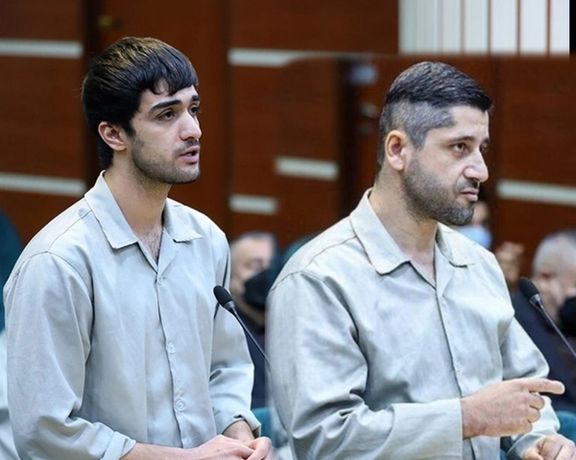
During the arrest and subsequent detention, the couple was severely beaten. Several broken ribs and a damaged lung necessitated three surgeries for Hamid, and the family said the assault had partly impaired his vision.
On November 6, 2022, state media broadcast forced confessions by the Gharehassanlous. It was reported that both Farzaneh and Hamid had visible signs of torture on their bodies.
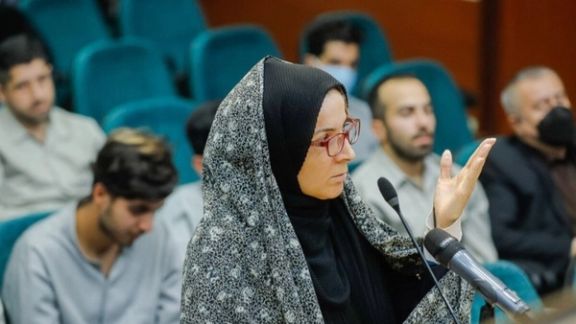
Hamid was initially condemned to death, while his wife Farzaneh faced a twenty-five-year prison sentence. However, these penalties were mitigated due to substantial social media outcry, international pressure, and a lack of evidence presented during a retrial.
A letter signed by over 1,100 doctors, including those from the Tehran University of Medical Sciences and across Iran, requested the release of Hamid and Farzane in December 2022. The letter highlighted their reputation as well-respected and charitable professionals.

The backlash was so intense that the Director of Public Relations for the Supreme Court of the Islamic Republic of Iran personally announced the appeal court proceedings in a Twitter message in January 2023.
Subsequently, it was announced that a court in Karaj, near Tehran, sentenced Hamid to fifteen years in prison, while his wife, Farzaneh, received a five-year sentence.
The family released a statement on social media shortly after the announcement of the new sentences, stating that even the footage of the incident obtained by security agents proves that the couple was not involved in the killing and was only present on the scene after leaving a protest in Karaj, near Tehran, on November 3.
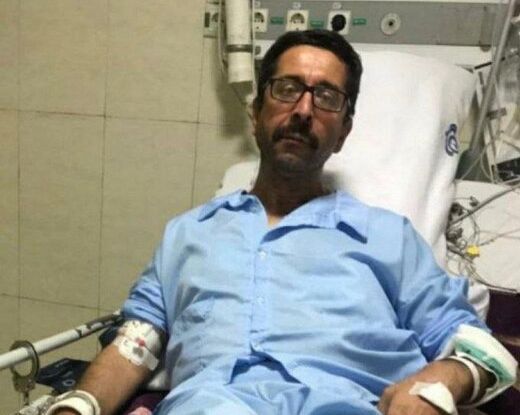
“We may ask for what crime, Farzaneh and Hamid have been placed in detention?” reads the statement, which described the very violent arrest of the couple and how it has greatly affected their daughter.
As members of the persecuted Sufi Gonabadi Order, the couple was well known for their involvement in charitable endeavors, including building schools for underprivileged children.
The United States Commission on International Religious Freedom reports that the couple is imprisoned on religiously oriented charges related to their Sufi beliefs, while "authorities falsely accused the Qarehassanlous of involvement in the killing of a member of a state-backed paramilitary force".
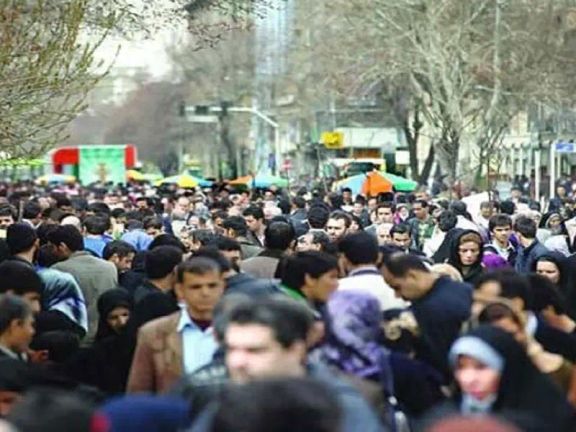
Amir Hossein Banikipour, a member of the Parliamentary Cultural Commission, announced a plan to award the "best Friday Prayer leader" for their efforts in boosting the country's declining fertility rates.
The announcement came amidst concerns over what he described as "the super-crisis of Iran's history," amidst a plummeting population growth rate.
He revealed that Supreme Leader Ali Khamenei described the population trend as leading to a "horrific future," emphasizing the urgency of reversing the decline.
The planned National Population Awards next year will commend clerics who excel in promoting higher fertility rates among their congregations.
Adding to the push, Shakiba Mohebi-Tabar, Secretary of the National Population Council, called the preservation of a youthful demographic as a "divine command," urging for a united effort between religious leaders and the community to tackle the issue.
Iran’s fertility rate has experienced a dramatic fall, currently sitting at a mere 0.6%, a sharp decline from 1.23% in 2021 and far below the 4.21% observed in 1984, shortly after the Islamic Revolution. With the population having grown from 40 million in the early 1980s to 84 million today, Khamenei has repeatedly voiced his ambition for the population to reach at least 150 million by 2050.
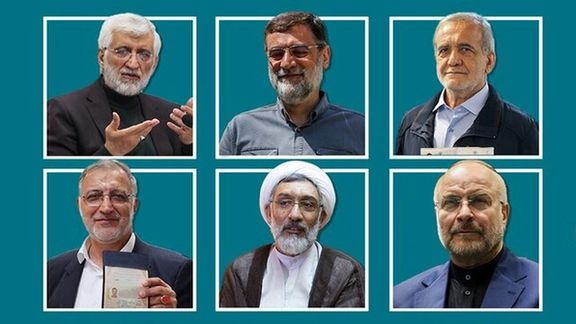
Iran's interior ministry has announced the final list of six candidates approved by the Guardian Council to compete in the presidential election scheduled for June 28.
The all male list consists of senior government figures such as hardliner Saeed Jalili who is Ali Khamenei's representative in the Supreme National Security Council, Mohammad Bagher Ghalibaf, the current Parliament Speaker and Masoud Pezeshkian, a 'reformist' parliamentarian.
Several high-profile figures were disqualified from running, including ex-President Mahmoud Ahmadinejad, former parliament speaker Ali Larijani, and former Vice President Es’haq Jahangiri.
The pattern is similar to the 2021 election, when Ahmadinejad and Larijani were rejected and only a second-echelon 'moderate' candidate was allowed to run. The result was a low-turnout election when Ebrahim Raisi passed the line in the first round.
Some analysts in Iran have told the local media that the race now will most likely be between Jalili, a former nuclear negotiator and an opponent of an agreement with the West, and Ghalibaf who is considered a more flexible politician. In any case, the issue of relations with the West and the fate of Iran's nuclear program are under the purview of Supreme Leader Ali Khamenei.
Also selected to run is Mostafa Pourmohammadi, a former minister of justice and interior, Amir-Hossein Ghazizadeh Hashemi, a current Vice President, and another hardliner, Tehran Mayor Alireza Zakani.
Jalili, 58, is making his third presidential bid, having been a significant figure in Iran's nuclear negotiation team and holding various senior positions within the ministry of foreign affairs. Jalili, who holds a Ph.D. in political science from Imam Sadiq University, is noted for his uncompromising conservative stance.
Former IRGC general Ghalibaf, 63, and the current Parliament Speaker, is known for his military and political experience.
The only reform leaning candidate, Pezeshkian, 69, has served as health minister and chancellor of Tabriz University of Medical Sciences. He is also a trained cardiac surgeon, holding a medical degree from Tabriz University.
Pourmohammadi, 64, infamous for his role in the "Death Commission" during the 1980s, has been a polarizing figure due to his past actions as deputy intelligence minister.
Ghazizadeh Hashemi, 53, currently serving as Vice President, head of the Foundation of Martyrs and Veterans Affairs, and an ENT surgeon, has maintained a conservative stance throughout his political career, representing the Mashhad and Kalat electoral district in Parliament for several terms. He holds a medical degree from Mashhad University of Medical Sciences.
Mayor of Tehran, Zakani, 58, noted for his confrontational style and conservative views. holds a Ph.D. in nuclear medicine from Tehran University of Medical Sciences. He has been an outspoken critic of the nuclear deal and a key figure in the conservative camp supporting the crackdowns on women defying compulsory hijab.
The snap election follows the sudden death of President Ebrahim Raisi who died in a helicopter crash on May 19 along with his entourage.
The candidates' approval by the Guardian Council, a body of clerics known for its allegiance to Supreme Leader Ali Khamenei, highlights the clerical rulers' continued grip on power. The upcoming elections are expected to see record low participation as the population rejects the sham polls rigged by the country's theocratic dictator.
The disqualification of heavyweights such as outspoken Ahmadinejad and Larijani came with mixed reactions from among the public. Ahmadinejad was highly unlikely to get through, but many thought that Larijani, as a quiet insider, will make it to final stage considering Khamenei's comment after his "unfair disqualification" in 2021.
On the other hand, the 'reformists' must be somewhat disappointed as only one of their official candidates has his credentials approved, Iranian analyst and Iran International contributor Behruz Turani said. The only reform-minded candidate, Pezeshkian's chances to win the presidency is uncertain because of his ethnic voter base, something that Khamenei is known to detest.
The final battle will be among "revolutionary" Jalili, insider Ghalibaf, and ambitious Zakani, observers say. Khamenei sees no difference among them although he definitely does not like Jalili's link to the over-ambitious and ultra-hardliner Paydari party, Turani argued.
In view of the security situation in the post 2022 protests, Khamenei's ideal candidates are more likely Ghalibaf and Zakani, both experienced IRGC and Basij operatives with a proven track record of suppressing dissent.
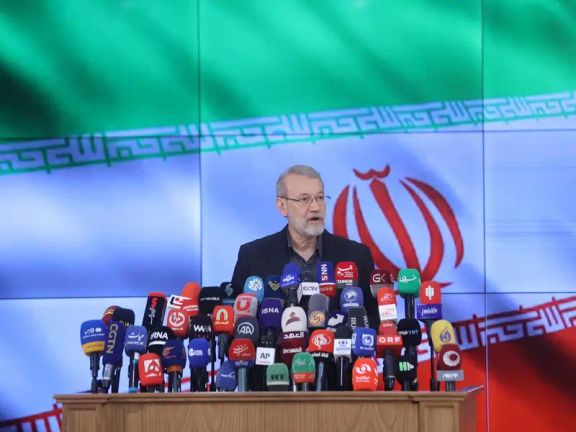
Ex-parliamentary speaker Ali Larijani claims to have received over one million messages of support for his application for running for president while he is yet to be approved by the Guardian Council.
The Guardian Council, which has ultimate control over the final list of candidates as approved by the Supreme Leader, Ali Khamenei, will announce the candidates in the coming days. Eighty people have registered for the upcoming snap presidential elections scheduled for June 28 following the sudden death of President Ebrahim Raisi in a helicopter crash last month.
Turnout is expected to be at a record low as the public remains aware that the decision for the sham elections lies ultimately in the hands of Khamenei.
Hadi Tahan Nazif, spokesperson for the Guardian Council, claimed Sunday: "The voting itself is entirely confidential, and the members do not know each other's votes. Opinions may be expressed during the discussion, and positions of agreement and opposition may become clear, but the members' votes during the voting process remain hidden."
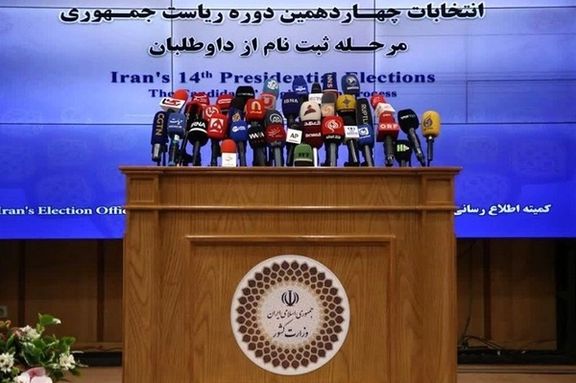
As Iran's Reform Front finally named its candidates for the June 28 presidential election, leading conservative figures fear a coalition of reformists may overwhelm the fragmented conservative camp, as in 2013.
Reform Front Spokesman Javad Emam on Friday nominated the Front's candidates as former Roads and Urban Planning Minister Abbas Akhundi, Member of parliament from Tabriz Massoud Pezeshkian, and former vice president Es'haq Jahangiri. Eman said that two thirds of the Front members voted for the three candidates. Now it all hinges on which one these candidates, if any, will be approved by the non-elected Guardian Council and be allowed to compete in the vote.
Earlier, the Reform Front and leading ‘reformist’ figure Former President Mohammad Khatami had said that they will not take part in the election if the Guardian Council does not endorse the qualifications of at least one of those nominated by the Reform Front.
The Reform Front is an umbrella organization of two dozens of reformist groups and political parties.
Meanwhile, conservative father figure former Majles Speaker Gholam Ali Haddad-Adel, who leads one of the conservative coalitions, told Entekhab News website that "If the conservatives follow the same strategy as in the 2013 presidential election, they will bring about their own defeat by dividing into different rival groups.
In 2013, moderates and reformists joined hands and won the election while several conservative candidates who refused to form a coalition lost the presidential election to moderate Hassan Rouhani who was backed also by the Reform Camp.
Haddad-Adel warned that all the conservative candidates should try to reach an agreement over one single candidate for the entire conservative camp. He was referring to "revolutionaries" such as Roads Minister Mehrdad Bazrpash, several candidates including Culture Minister Mohammad Mehdi Esmaili from within the incumbent government, which is the legacy of the Raisi administration. Other conservatives include former member of Supreme Leader AIi Khamenei's office Vahid Haghanian, Majles Speaker Mohammad Bagher Ghalibaf, his predecessor Ali Larijani and several other low-key conservative figures.
During a speech to the coalition of the "Revolutionary Forces," Haddad-Adel defended Ghalibaf against his political rivals who had accused him of financial corruption. Meanwhile he called for the unity of the conservative front in the aftermath of the death of hardline President Ebrahim Raisi in a helicopter crash in May and echoed Khamenei's call for electing a revolutionary, hard-working insider as Iran's new President. He added that the presence of candidates from various political groups showed "religious democracy" in action.
Interestingly, ultra-hardliner newspaper editor Hossein Shariatmadari also backed Ghalibaf on Sunday against hardliners. He is usually seen as reflecting the thinking of Khamenei’s headquarters.
In another development, a former Tehran mayor Gholamhossein Karbaschi said in an interview that either Ghalibaf or Larijani are going to win the presidential election. He added that the candidacy of five of the incumbent government officials in this election is disgraceful. He also characterized the candidacy of two brothers from the same family, deputy Majles Speaker Ali Nikzad and his brother, as laughable.
Conservative political activist Hossein Kanani Moghaddam, on the other hand, said that the main competition will be between ultraconservative former nuclear negotiator Saeed Jalili and Majles Speaker Ghalibaf. He opined that it is unlikely the Guardian Council would endorse Larijani's qualifications.
Moghaddam argued that the Guardian Council faces a serious challenge, as disqualifying most of the 80 registered candidates is difficult, given that many are incumbent and former officials. Unlike many Iranian politicians who criticize Ghalibaf for running in the presidential election just one week after becoming Majles Speaker, Moghaddam noted that around 200 members of the Iranian parliament have backed Ghalibaf's candidacy. Nevertheless, his decision to run came as a surprise to many others.